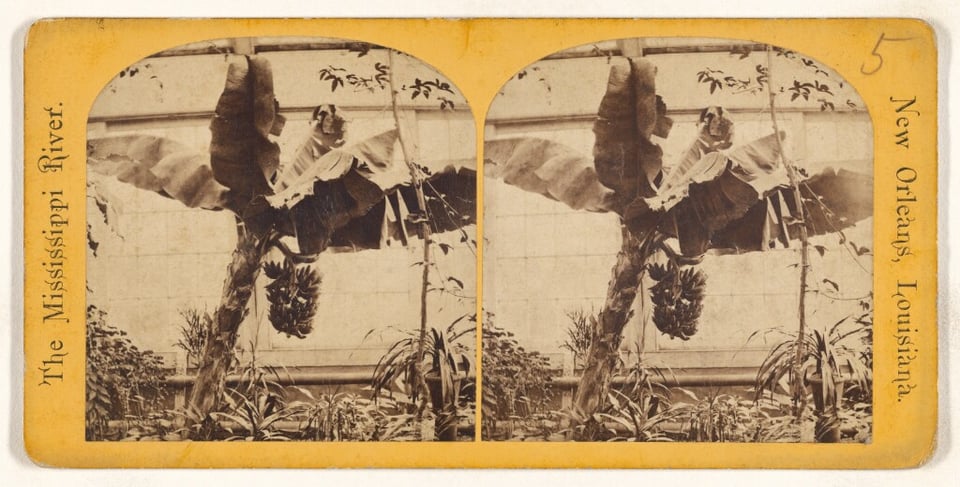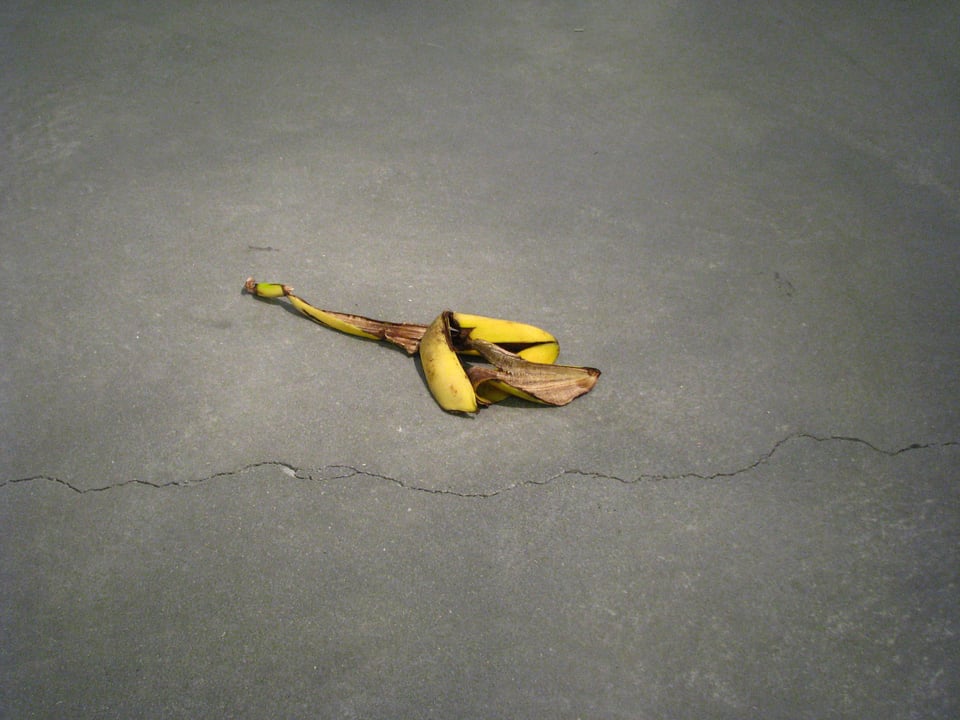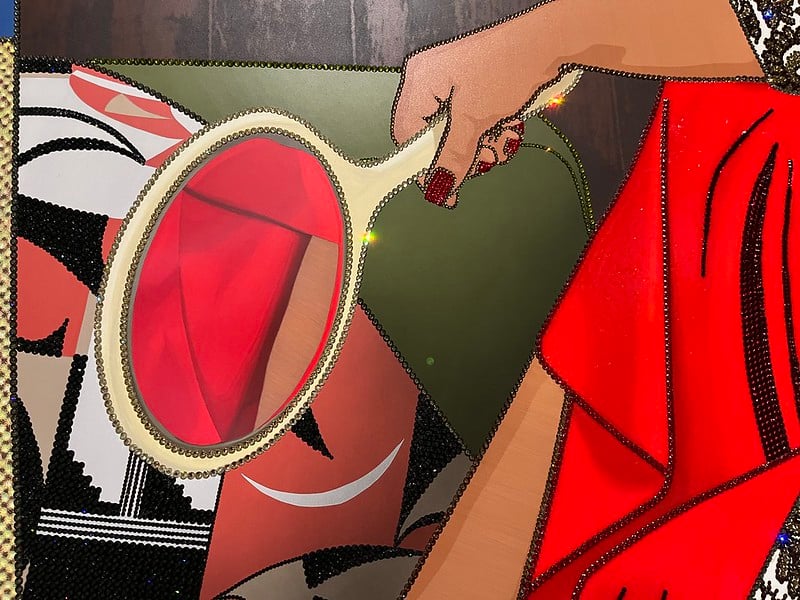Bananas is my business
In this edition: a $6.2 million banana, an Iranian domestic thriller and beige on beige violence
I’ve been thinking about bananas.

Namely, because a conceptual work made with a banana and duct tape titled “Comedian,” first presented by Maurizio Cattelan at Art Basel in 2019, just sold at auction for $6.2 million to a crypto bro who ate it afer he placed the winning bid. But also because a reporter at the New York Times tracked down the fruit vendor who sold Sotheby’s the banana for 25 cents. The man, who shares a basement apartment in the Bronx with five other men, cried when he learned what Cattelan’s work had sold for.
To bring this ouroboros of shit full circle, Mr. Crypto Bro was charged with securities fraud by the SEC early last year. And, late last month, he invested $30 million in a crypto scheme backed by Donald Trump. (Mr. Bro has stated that the complaint “lacks merit” and his attorneys have asked a federal judge to dismiss the charges.)
Cattelan told the New York Times he felt “fantastic” about the sale — though, being a secondary market auction, he won’t earn anything from it. “The auction has turned what began as a statement in Basel into an even more absurd global spectacle,” he said. Later adding: “In that way, the work becomes self-reflexive: The higher the price, the more it reinforces its original concept.” The concept being something something about his willingness to “implicate himself within the economic, social and discursive systems that structure how we see and what we value.”
For the record, Cattelan isn’t the first to use a real deal banana in his art as a Duchampian joke. Mexican artist Adriana Lara installed a work involving a discarded banana peel for the New Museum’s triennial in 2009. And British artist Sarah Lucas took some admirable photos of herself eating bananas back in the ‘90s. (It would appear that “what we value” doesn’t include art by women, because they are not getting these kinds of auction prices for bananas.)

But I’ve also been thinking about bananas because they are the namesake fruit of the ‘banana republic,’ the sobriquet bestowed upon banana-growing nations by the U.S., which helped make those nations banana republics to begin with — partly by financing violent coups and paramilitary organizations.
The banana is frequently used to symbolize gags. But perhaps it’s a more fitting symbol of naked greed and corruption. Which brings me back to Sotheby’s and the small circle of people who swap “value” for millions as a fruit vendor earns 25 cents. The fact that it’s a banana couldn’t be more appropriate. Congrats, high end art world, you have found your fruit.
SEEDS OF GREATNESS.
I recently slipped into a screening of Mohammad Rasoulof’s “The Seed of the Sacred Fig” with little idea of what the film was about. I then proceeded to spend the nearly three-hour-run-time feeling as if I was sitting on the edge of a razor blade.

The story revolves around a man named Iman (played by Missagh Zareh) who is promoted to the privileged post of investigative judge in Tehran. This higher profile role will bring more money and status, but it will also put more pressure on his family. His two daughters will need to remain in strict obeyance of legal and moral codes so as not to draw the unwanted attention of party bosses or dissidents who might want to do them harm.
Iman’s promotion is timed to the the real-life events surrounding Mahsa Amini, a young woman who died in the hands of morality police in 2022, allegedly for not wearing her hijab according to custom. Her death ignited a series of protests around Iran, which were brutally repressed by police.
In the film, Iman’s wife and daughters seal themselves in their tiny Tehran apartment in order to avoid the violence, but violence has a way of finding them regardless. Parallel to the story of the protests is the Chekhovian tale of a gun: Iman was assigned such a weapon upon his promotion, but now it has gone missing, and that slip could land him in jail.
I was struck by so many things about “Seed”: the ways in which the paranoias of a regime can eat at the integrity of a family, how the family’s apartment evolves from cozy home into de facto prison, and the ways in which Rasoulof seamlessly wove actual footage of the protests into the story. But I was most struck by the characters of the daughters, empathetic Rezvan and plucky Sana, brilliantly played by Mahsa Rostami and Setareh Maleki. They are terrified, but also defiant. At one point, they enlist their mother, Najmeh (the fantastic Soheila Golestani), to secretly assist a friend who has been blasted in the face with buckshot — a scene that plays out like a gruesome 21st century Pietà.
The film ends in visual terrain that feels more metaphorical than literal. And yes, the gun re-emerges. But what has stuck with me most in the weeks since I saw the film hasn’t been the dramatic denouement, but the stories of two young women who find ways of operating outside the web of rules intended to govern their bodies and their minds. Women who, even in the face of terrible violence, find ways to resist. What a poignant story for right now.

Read Justin Chang’s review in the New Yorker.
Director Mohammad Rasoulof secretly shot the film in Iran then had to flee to avoid a prison sentence. The New York Times Magazine has the story.
And here is the official website for “Seed.” It’s in theaters now.
MY WORK IN THE WORLD.
I recently wrote about Mickalene Thomas’s exhibition “All About Love,” which was on view at the Broad and is now up at the Barnes Foundation in Philly for the New York Review of Books. Her show really made me think that museums don’t all need to look like dentist’s offices. Like, you can turn the lights down.

On Monday, December 16, the New York Review of Architecture is holding a little partay for its new issue in Brooklyn. I won’t make it, but I do have a big story landing in that issue, so keep your eyes peeled. 👀
RANDOM CLICKS.
If you live in L.A., don’t miss Firelei Báez’s show at Hauser & Wirth, on view through Jan. 5. I alway dig the mischievous ways her paintings reckon with colonial legacies.
Kwasi Boyd-Bouldin is reporting that the West Angeles Church is up for demolition and I am truly bummed because I adore that keyhole facade.
I’m always here for Emily Colucci, but even more so when she’s writing about things like Japanese food replica culture.
I’m also always — always —here fore beige on beige violence.
Thanks for reading. I’ll be back soon.
-
I never thought of it before reading your story about bananas, but it would be reasonable to make Trumps first and second presidency’s official symbol an orange banana to signify how he’s going to insert himself so far up our asses, that history will be written to favor his terms. We are all fucked from this point on, and normal is a thing of the past. Good newsletter girl. Thanks, and see you next time!
-
Carolina, this is SUCH a good one! And congrats on Warhol award!
-
Another captivating and idiosyncratic article! I despaired you might vanish into academia post-LA Times, not a bad perch, I suppose. I love your magpie mind.
Thank you!
-
Thank you so much for this column Carolina. Reading it gives me so much pleasure.

Add a comment: